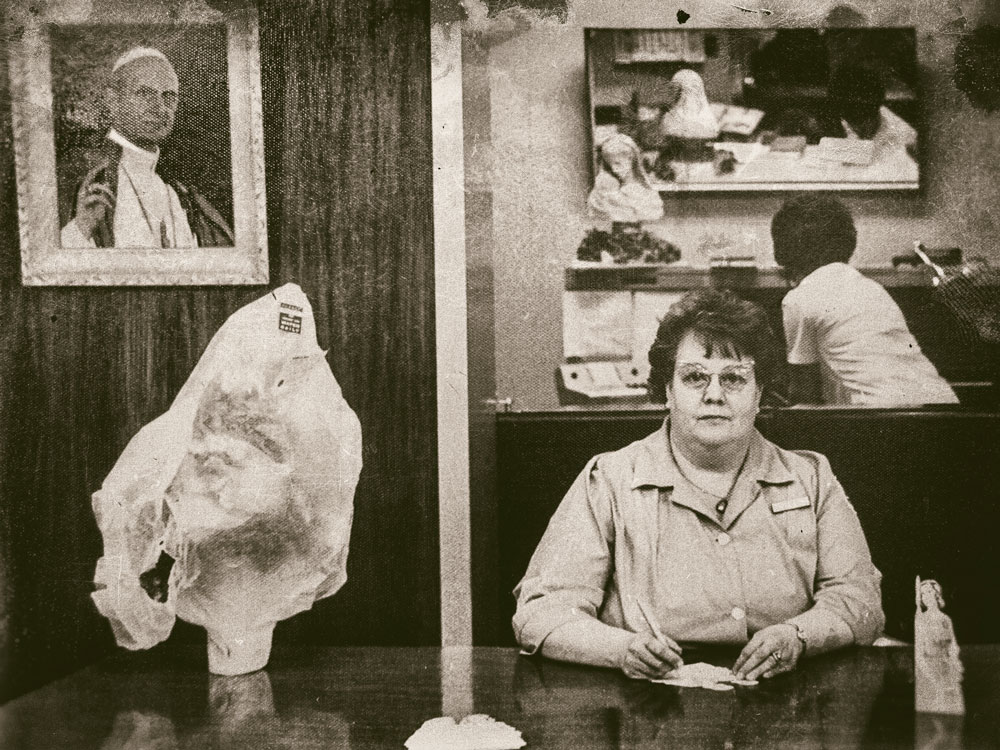Instances of Waiting
 Waiting for an order in Guan Yin’s Chinese take-out. It’s a holiday week in our resort town and things are busier than usual. For instance, I’m sharing the waiting area with a stranger and his young son, age six or so. It’s Tuesday and usually there’s nobody in here. We’re all masked up and biding our time. The father and son are dressed in dark, stylish ski outfits. I’ve got my usual duds on. I haven’t changed them in days. Through the big glass window is a view of the mountain and its slopes. Dusk is coming on.
Waiting for an order in Guan Yin’s Chinese take-out. It’s a holiday week in our resort town and things are busier than usual. For instance, I’m sharing the waiting area with a stranger and his young son, age six or so. It’s Tuesday and usually there’s nobody in here. We’re all masked up and biding our time. The father and son are dressed in dark, stylish ski outfits. I’ve got my usual duds on. I haven’t changed them in days. Through the big glass window is a view of the mountain and its slopes. Dusk is coming on.
The father stands opposite from where I’m sitting near the open door to the sizzling kitchen. He’s staring into his phone. The son, sitting in a chair next to his father, plays with little packets of sweet-and-sour sauce lifted from a bin set out on a table for customers to help themselves. Along the windowsill he arranges and re-arranges the packets to his satisfaction. Weary of this amusement, he returns the packets to their bin. He reaches into another bin and pulls out a handful of soy sauce packets, proceeds to arrange and rearrange them along the windowsill in much the same way as before. Weary of this, he tosses the soy sauce packets into the bin of sweet-and-sour sauce.
The father, weary himself, looks up from his phone and regards his son, now tracing inscrutable designs with his finger in the condensation on the window. The father hands the phone to the son. The boy knows instinctively what to do with it. A few taps on the screen and he settles down and sits still. He becomes the buddha of this place.
The father, indifferent to the condiments, looks around for something to ward off boredom. He sees me. He turns his head to see what I’m looking at. I’m looking at his son. Now we’re both looking at his son, who is looking at a phone in unsurpassed, complete inactivity. Together the father and I weary of this and turn our heads toward each other—two masked strangers doing, if not looking at, the same thing.
I have nothing to say. Maybe he does. His eyes suggest as much. Maybe he’s smiling nervously behind that mask. Who knows? We’re still looking at each other, but for my part I’m thinking about Chinese food.
How much time passes in this way, the two of us looking at each other and not saying anything, no one can say. I believe I am content with this arrangement, but he seems to have something else in mind, probably a conversation. Yes, a conversation looms.
With unexpected volume he says: “Kids don’t play with toys anymore.”
“Huh?” I say.
He jerks a thumb in his son’s direction and says, “That’s their toy.”
“Oh.”
“That’s all they do anymore, they just look at their phones. They never go out and play. I had to drag him up here to the mountains and make him go ski. I don’t think he likes it.”
I look over at the son. He’s still looking at the phone, undisturbed by his father talking about him in a loud voice to a perfect stranger.
Guan Yin yells from the kitchen: “Your order is ready.”
At the same time, the stranger and I yell back: “Whose?”
“Both of you. Both of you ready.”
Without looking up from the phone, the boy asks: “Can we go?”
* * *
Early morning in the “admission lounge” of a brand-new hospital, an old man, unaccompanied, stands in front of the reception counter. He has that bewildered look of the recently arrived immigrant to failing health. A chirpy young woman behind the counter asks: “Are you checking in with us this morning?”
The old man says nothing. He looks to the left, then to the right, then down at the countertop. In a soft voice he says, “Yes.”
“Wonderful!” says the young woman. “May I have your name?”
The old man looks down at the floor, as if his name had fallen there—or maybe he is looking for a new one. After long consideration of what lies down there, he lifts his head and softly speaks a name to the young woman.
She types it into the computer. She looks at the monitor and smiles. All his information is there. She hands him a piece of paper and asks him to sign it.
He stares at the document. His status appears fixed. He has been assigned a case manager and a room. He has a team of physicians and nurses ready to conduct their procedure on him. Today’s schedule, apparently, will be very tight. Various outcomes loom.
“Go ahead,” says the young woman, “you can sign it.”
The old man signs the document.
Still smiling, the young woman says, “Have a seat over there.”
The old man looks to where she points—a dimly lit alcove that serves as a waiting area. Against the far wall is an empty chair. To the left of the chair is a closed door.
The old man looks at the young woman one last time. She says: “Somebody will come when they’re ready for you.”
The old man turns and moves slowly toward where he’s supposed to go.
 ©John P. O’Grady
©John P. O’Grady
Originally appeared in The Mountain Eagle on February 26, 2021


